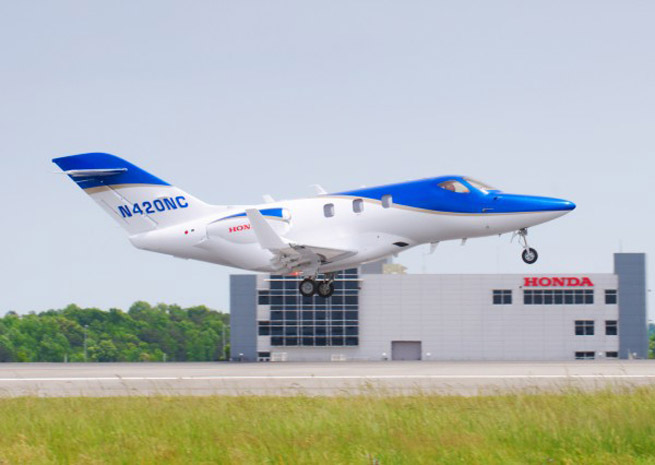
While challenged by engine flight test problems and a struggling economy, the president and CEO of Honda Aircraft remains optimistic that his light jet will be the right airplane at the right time.
In an exclusive interview with AOPA Live This Week from the European Business Aviation Convention and Exhibition (EBACE) in Geneva, Michimasa Fujino acknowledged the world economy is quite different than when the proof-of-concept HondaJet first flew in December 2003. But the first flight May 16 of the fifth conforming airplane is “a big milestone for us and a first flight is emotional for us too,” he said. The last of the conforming airplanes taking to the air is the beginning of the end of the airplane’s long testing program.
The fifth conforming airplane will be used for function and reliability testing. Equipped with a production interior, a standard lavatory, and numerous options, the airplane will be used to fine-tune all of the things a customer uses and touches on the airplane and prove the reliability of the systems. “From inside and out, this HondaJet matches the final configuration of a customer aircraft,” Fujino said after the first flight. “Our flight test fleet maintains a very active schedule and continues to complete milestones for FAA certification flight testing.”
Speaking from EBACE this week, Fujino described the recently announced one-year delay of HondaJet customer deliveries as “very unfortunate.” Several problems have led to numerous delays of the GE Honda Aero Engines HF120 turbofans. Fujino said he plans to use the delay to fine-tune process improvements on the jet production line. With aircraft certification now planned for late 2014, he hopes to ramp up quickly to deliver the more than 100 HondaJets on order.
Meanwhile, work on the customer service center at the company headquarters in Greensboro, N.C., continues. That facility will serve as a heavy maintenance site capable of doing extensive composite repairs. Seven dealer locations in North America and three more in Europe will provide additional service support.
Despite the economic challenges of recent years, Fujino is confident that a U.S. gross domestic product growth in the range of 3.2 percent will spur business jet sales growth of four percent over the coming decade—a growth rate that may increase if the federal government implements more favorable tax policies. “If we provide a high efficiency product and low-cost transportation, I think there is still a good potential demand for the light business jet market,” he said.



